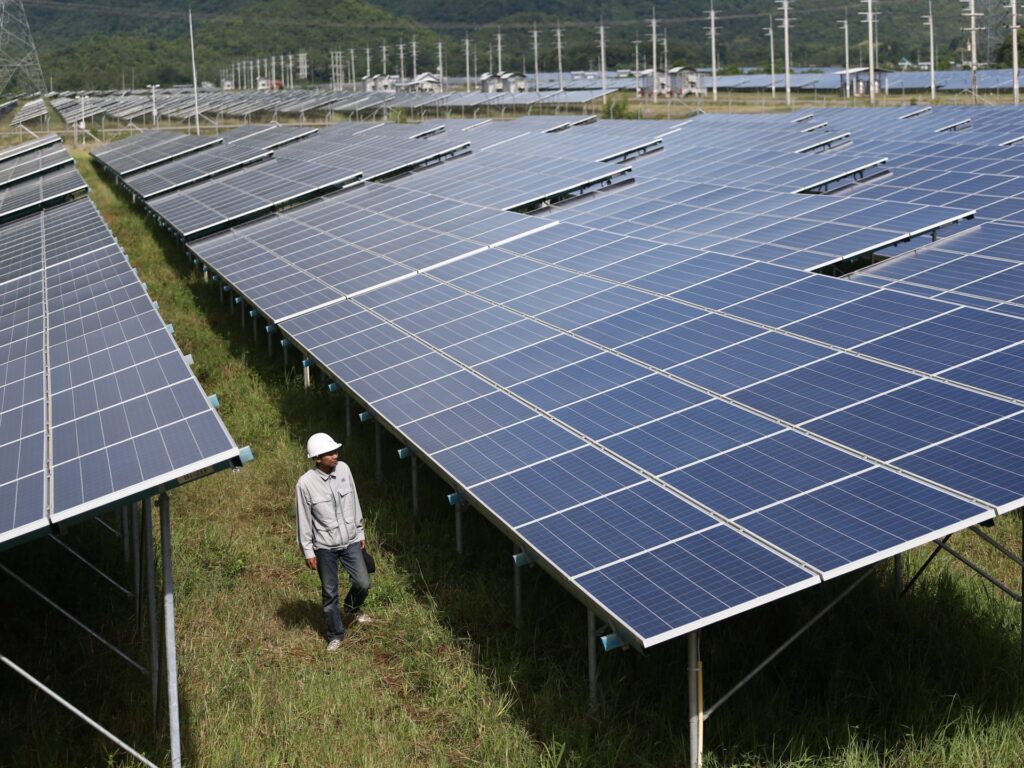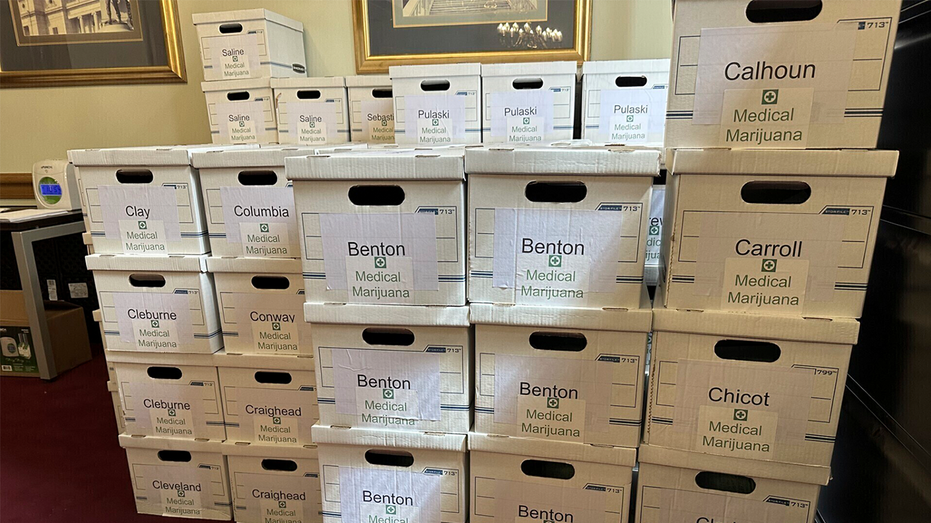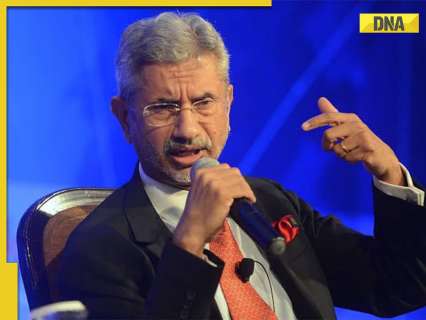Southeast Asia deepening dependence on fossil fuels, report warns

ASEAN’s 10 members met the entirety of region’s rise in electricity demand last year through fossil fuels, report says. Southeast Asia is at risk of deepening its dependence on fossil fuels as it tries to meet surging demand for electricity, an environmental think tank has warned. The 10 nations of the Association of Southeast Asian Nations (ASEAN) met the entirety of the region’s 3.6 percent rise in electricity demand last year through fossil fuels, the United Kingdom-based think tank Ember said in a report released on Tuesday. ASEAN’s share of energy generated by renewables, meanwhile, fell to 26 percent compared with 28 percent in 2022 amid a decline in hydropower production due to droughts and other extreme events, the report said. Carbon emissions grew by 6.6 percent last year, representing an additional 44 million tonnes of CO2 in the atmosphere, according to the report. Top coal polluters included Vietnam, Malaysia and the Philippines, while Singapore and Thailand’s emissions mostly came from natural gas, according to the report. Ember said the region’s slow energy transition means it is missing out on the benefits of renewables, including the declining cost of solar and wind power, which are now cheaper than fossil fuels. “Continuing at this pace of transition risks ASEAN becoming more dependent on fossil fuels, missing opportunities presented by emerging clean energy technologies and economics, and failing to meet climate targets,” the think tank said in its report. “Meanwhile, electricity demand continues to grow rapidly, making it more important than ever to meet this demand with clean energy.” Ember said two of the most promising long-term solutions are solar power and wind power, as hydropower faces increasing reliability issues due to droughts and changing rain patterns. The report came as the International Energy Agency (IEA) on Tuesday warned that Southeast Asia would need to invest $190bn – or five times its current rate of investment – to achieve its climate goals by 2035. Even with clean energy sources projected to meet more than one-third of the growth in energy demand, the region is still on track to increase its carbon emissions by 35 percent between now and 2050, the Paris-based intergovernmental organisation said in a report. Demand for electricity in Southeast Asia is set to grow at an annual rate of 4 percent, according to the IEA report. “Clean energy technologies are not expanding quickly enough and the continued heavy reliance on fossil fuel imports is leaving countries highly exposed to future risks,” the IEA’s executive director, Fatih Birol, said. Courtney Weatherby, the deputy director of the Stimson Center’s Southeast Asia programme, said that renewables like solar power have great potential but there are still many institutional roadblocks in the way. Many ASEAN countries are trying to modernise and expand their energy generation capacity at the same time, leading to conflicting priorities, Weatherby said, while renewables still face problems like storage, grid management and the inability to produce power on demand during peak hours. “Most countries in ASEAN are coming from a relatively low starting point for solar/wind deployment and this means that even rapid expansion will not lead to a full transition in a timely manner,” Weatherby told Al Jazeera. “More importantly, the mandate for power utilities is to ensure that the power supply is stable and reliable in order to ensure both access to power for consumers and also support ongoing economic development through attracting investment, often in manufacturing,” she added. Adblock test (Why?)
Harvey Weinstein diagnosed with bone marrow cancer, reports say

Jailed Hollywood producer is being treated in prison for chronic myeloid leukaemia, US media outlets report. Hollywood producer Harvey Weinstein has been diagnosed with bone marrow cancer, media outlets in the United States have reported. Weinstein, who became the most infamous face of the #MeToo era after dozens of women accused him of sexual harassment and assault, is being treated in prison for chronic myeloid leukaemia, NBC News and ABC News reported on Monday, citing unnamed sources. Chronic myeloid leukaemia, also known as chronic myelogenous leukaemia, is a type of cancer that starts in the blood-forming cells of the bone marrow and invades the blood, according to the American Cancer Society. It makes up about 15 percent of leukaemia cases in adults, according to the organisation. The reports come as Weinstein is awaiting a new trial in New York after an appeals court threw out his 2020 convictions for rape and sexual assault. The New York State Court of Appeals ruled 4-3 that the judge in the original case had wrongly allowed prosecutors to present allegations that were not part of the charges. Weinstein was not released from prison after the decision as he is also serving a 16-year prison sentence in Los Angeles for rape and sexual assault. He is also being prosecuted over a newer allegation that he sexually assaulted a woman at a Manhattan hotel in 2006. The 72-year-old film mogul last month pleaded not guilty to one count of criminal sex act in the first degree in that case. He has insisted that all sexual encounters he was involved in were consensual. Weinstein, whose production house Miramax released blockbusters such as Shakespeare In Love and Pulp Fiction, has reportedly faced a myriad of health issues since his imprisonment. Last month, he underwent emergency heart surgery to remove fluid in his lungs and heart, according to his representatives. In July, the once-powerful film executive was hospitalised for a range of conditions including COVID-19 and double pneumonia, according to his representatives. Adblock test (Why?)
Uttar Pradesh: 6 killed in oxygen cylinder blast in Bulandshahr house

District Magistrate of Bulandshahr Chandra Prakash Singh said the incident occurred on Monday evening in the house of one Riyazuddin in which around 19 people, including women and children, were living.
India launches its 4th nuclear-powered submarine, set to play major role in…

The submarine was commissioned on October 16, 2024, during the launch ceremony of the Ship Building Centre in Visakhapatnam
Votes for Arkansas ballot measure on medical marijuana will not be counted, court rules

The Arkansas Supreme Court ruled Monday that voters will not be allowed to weigh in on a ballot measure to expand medical marijuana in the state, arguing that the initiative failed to fully explain what it entails. In a 4-3 decision, the justices threw out the initiative just two weeks before the election, according to The Associated Press. It is too late to remove the measure from the ballot, as early voting began on Monday, so the court instructed election officials not to count any votes on the initiative. The proposed constitutional amendment would have expanded the definition of medical professionals who can certify patients for medical cannabis, added qualifying conditions and made medical cannabis cards valid for three years. The court ruled the Arkansas Medical Marijuana Amendment of 2024 did not fully inform voters that it would have removed the authority of the state Legislature to change the 2016 constitutional amendment that legalized medical marijuana in the state. OLDER AMERICANS TURN TO MARIJUANA FOR BETTER SLEEP AND PAIN RELIEF: HERE’S WHAT TO KNOW “This decision doomed the proposed ballot title, and it is plainly misleading,” Justice Shawn Womack wrote in the majority opinion. The court also said the initiative did not inform voters that the amendment would legalize up to an ounce of marijuana possession for any purpose if marijuana were legalized at the federal level. Organizers of the initiative said in court filings that the ballot measure did cite the number of provisions that would be repealed and argued that previous court rulings said measures did not need to summarize the current law that would be amended. Justice Cody Hiland said in a dissent that the court was ignoring decades-long precedent by ruling the measure’s language was misleading. “Long ago, this court established definitive standards for evaluating the sufficiency of popular names and ballot titles,” Hiland wrote. “This court has not deviated from those standards until today.” The court also rejected election officials’ reasons for ruling the measure’s organizers fell short of the signatures needed for placing the measure on the ballot. EARLY IN-PERSON VOTING BEGINS FOR ALASKA, ARKANSAS, CONNECTICUT, IDAHO, NORTH DAKOTA, SOUTH CAROLINA, TEXAS Arkansans for Patient Access, the group behind the measure, said it would continue its push to expand the medical marijuana program and that the signatures it gathered displayed widespread support. “We are deeply disappointed in the Court’s decision,” the group said in a statement. “It seems politics has triumphed over legal precedent.” The group filed a lawsuit after Arkansas Secretary of State John Thurston said it fell short of the signatures required to qualify for the ballot. The issue over the ballot measure’s language was raised by Protect Arkansas Kids, a group that opposed the measure and intervened in the case. Thurston’s office had refused to count some of the signatures submitted, claiming the group had not followed paperwork rules about paid signature gatherers. Earlier this year, the state rejected petitions submitted in favor of a pro-life ballot measure on similar grounds. In July, the state said the group had fallen short of the required signatures for the medical marijuana measure but qualified for 30 additional days to circulate petitions. The state then told the group that any additional signatures gathered by paid signature gatherers would not be counted if required information was submitted by the canvassing company rather than the measure’s sponsors. The court said Monday that this decision was wrong, arguing that state law allows a wide range of people to be considered sponsors of the measure. Other groups had been campaigning against the measure, even as it was unclear whether it would be on the ballot next month. The Family Council Action Committee announced last week it planned to launch a statewide tour opposing the measure. “A measure this bad simply has no business being on the ballot or in the constitution,” the committee’s director, Jerry Cox, said after Monday’s ruling. About half of U.S. states allow recreational marijuana and a dozen more have legalized medical marijuana. In November, voters in Florida, North Dakota and South Dakota will decide whether to legalize recreational marijuana for adults, while two measures on medical marijuana will be on ballots in Nebraska. The Associated Press contributed to this report.
Karni Sena announces Rs 1,11,11,111 for any police officer who kills Lawrence Bishnoi

Lawrence Bishnoi is currently in Gujarat’s Sabarmati jail on charges related to cross-border drug smuggling. His gang is also linked to several high-profile crimes
Delhi AQI October 22: Air quality in ‘very poor’ category, Centre imposes GRAP Stage II from today

The PM2.5 concentration in the city is currently over ten times higher than the World Health Organization’s recommended limits for 24-hour air quality exposure.
‘India values close cooperation within BRICS’: PM Modi as he leaves for Russia to attend Brics Summit

PM Modi said this in a statement as he embarks upon a two-day visit to the Russian city of Kazan to attend the annual summit of the BRICS grouping.
Ganderbal terror attack: Security forces launch massive combing operation, protests continue against killings in J-K

National Investigation Agency (NIA) agents scoured the scene for crucial evidence as army, CRPF, and police units spread out across the hills surrounding the construction area to track down the perpetrators and their accomplices involved in one of the deadliest attacks.
‘Even double standards are…’: Jaishankar’s big attack on Canada amid diplomatic row

Jaishankar highlighted how Canada applies different rules to its own diplomats compared to those of India
